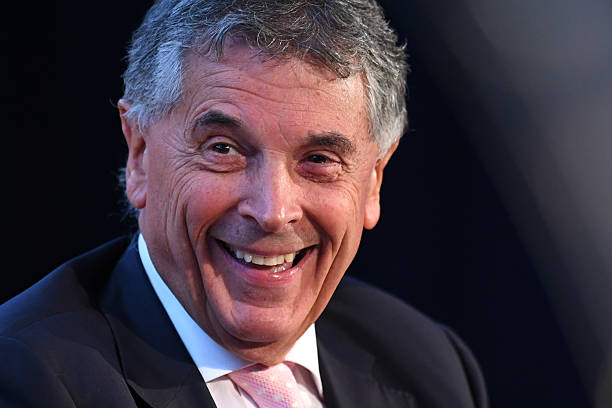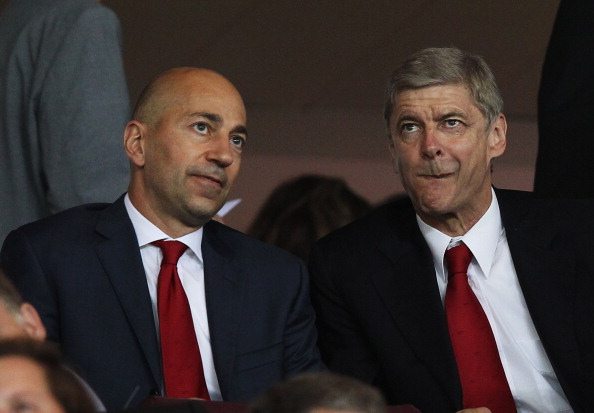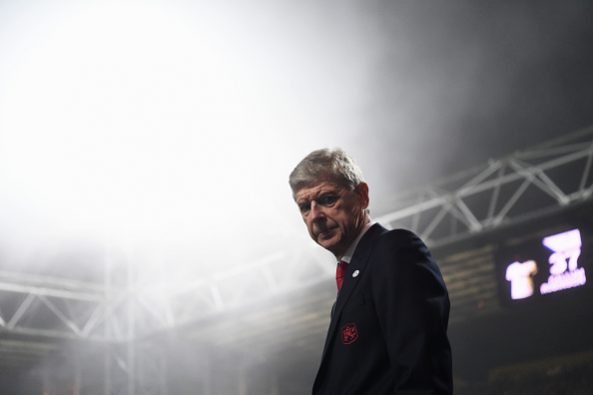The relationship between Arsene Wenger and the Arsenal board has been strained for a large period of the season.
The phrase “victory through harmony” took an ironic twist.
The words imply that victory can be attained by people being united and working together. Everyone at the club should be united in what they want to achieve: to make Arsenal the best team in the world.
This unity certainly exists when the team is doing well. Bar a disastrous opening day to defeat Liverpool, Arsenal started the season extremely well. They went 19 games unbeaten in all competitions, scoring plenty of goals for their troubles.
But then, the collapse happened. Arsenal’s form took a significant dive in 2017, suffering defeats to the likes of West Brom, Watford and Crystal Palace, and being hammered 10-2 across two games by Bayern Munich in the Champions League. Not only did they lose ground in the title race, they also lost ground on the top-four.
It so happened that Arsene Wenger’s contract was running down and the inevitable questions about his future came up. While Wenger would eventually extend, there was a period where he and the board seemed to be at war.

The contentious issue was the potential arrival of a Director of Football. Arsenal have operated without one for many years, even after David Dein, the closest thing to a Director of Football at the club, was ousted.
Where many other clubs in Europe will have a Director of Football to oversee several departments so the manager can focus on coaching, Arsenal opted to pile all the responsibility onto Wenger.
As a result, the long-serving Gunners boss became near omnipotent at the club. He had a say in every football decision, from the transfers to the mattresses players slept on when they were on the road. He’s enjoyed having this level of control and responsibility.
But with results on the pitch suffering, slow and dubious recruitment and a number of quality players missed by the club’s scouts, there was talk of instilling a Director of Football. Reports emerged that the club intended to do this back in April.
According to the Express, the likes of Borussia Dortmund’s Michael Zorc and Ajax’s Marc Overmars were touted as potential candidates for the role.
Wenger made his feelings about the potential appointment apparent, stating that he didn’t know what a Director of Football even did, reported the Guardian.
“Is it someone who stands on the road and directs the players left and right?” he said in a press conference. “I don’t understand and never understood what it means.”
Wenger, it seemed, saw the club’s move for a Director of Football as a direct attack on his position as manager. The idea of power being taken away from him didn’t sit well. He had a pure view of how football management should be: all on-pitch matters should be the manager’s, and only the manager’s, responsibility.
That, of course, wasn’t the end of it. In a fan’s forum, Ivan Gazidis told supporters that the season had to be a “catalyst for change”. Gazidis was pushing for structural change at the club to give Arsene Wenger more support.
To nobody’s surprise, Wenger took offence to this as well.
“I don’t know what ‘catalyst for change’ means. The problem in our game today is that what is superficial is at the heat of the debate and nobody talks about the things that really matter.”

“We speak about the ability to reinvent ourselves, but that is nothing to do with changing yourself. It’s about evolution and always trying to improve.”
“Change is at the heart of who you are. A spectacular change now would be very difficult”.
All the sudden, Wenger and Gazidis were at war with each other through the media. The issue was a sure way to rile Wenger during press conferences, where he would often assert his position at the club. In one conference, he said:
“Some coaches are only interested in managing the team and they are happy with it. I am not like that and I cannot change myself now. I can change by trying to get better but my personality? I have 40 years of experience at the top, top level and I think, personally, I have a good knowledge of the game. I am who I am. That is it.”
Gazidis, meanwhile, opted to remain silent and communicated his intent through reports fed to journalists. For a club that prided itself on being well-run and secretive – what they would say is the “right way” to go about business – this was a very public dispute between two key figures.
As did continued for weeks, Wenger continued to take criticism and abuse for how Arsenal’s season was ending. This was a man with few supporters and nobody on the Arsenal board seemed willing to publicly support him. Stan Kroenke, supposedly Wenger’s biggest supporter, remained as silent as ever while Wenger took bullet after bullet. It disguised the fact that Wenger wasn’t the only problem at the club.
There was a feeling that something would have to give, with either Wenger or Gazidis leaving the club if they didn’t get their way. That Wenger was in a position where he could oppose structural changes proposed by higher-ranking figure is indicative of the influence and power he has at the club. At most other clubs, the manager would have been sacked if he didn’t agree to changes.
The end of this story, though, seems far happier than many predicted it would be. Wenger signed a new contract and there’s no indication Gazidis will be leaving the club. The two shared a very public hug after the FA Cup final, and have conducted a full review of the team together. Either one of them backed down or a compromise was reached.
Time will tell what the outcome of the review was. It’ll be a crucial one, as it’ll determine how well-placed Arsenal will be come the end of this new contract. The last thing Arsenal want is a repeat of the dispute in 2019.

